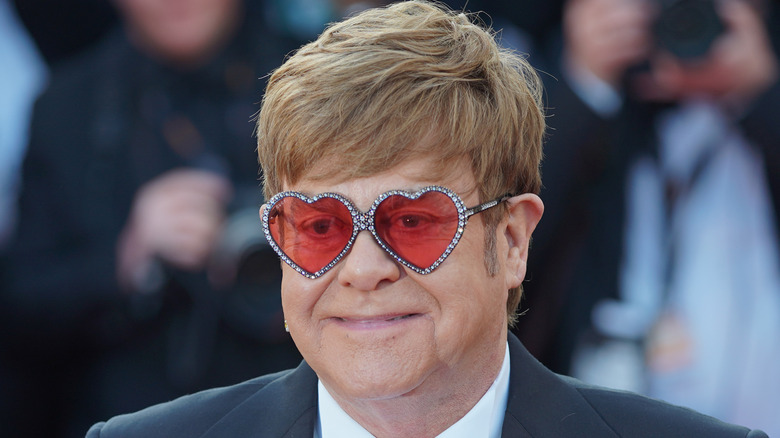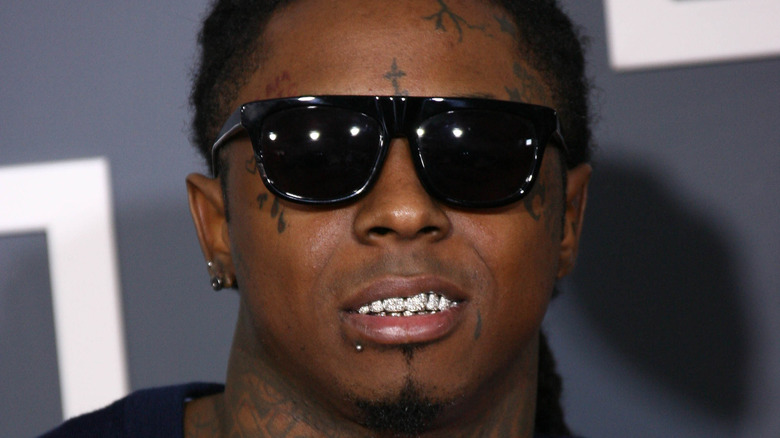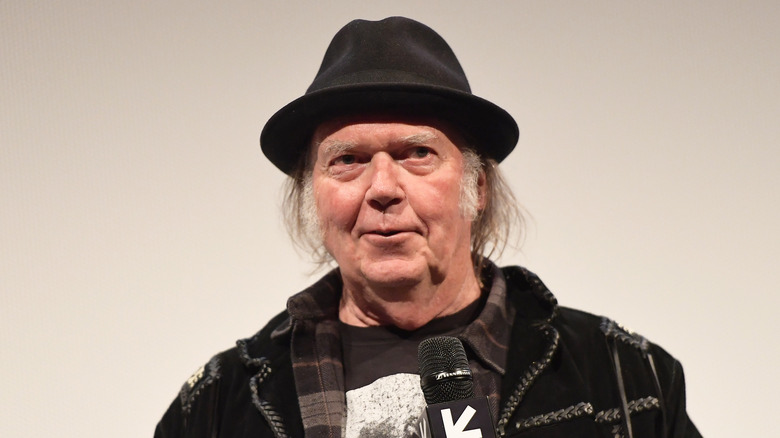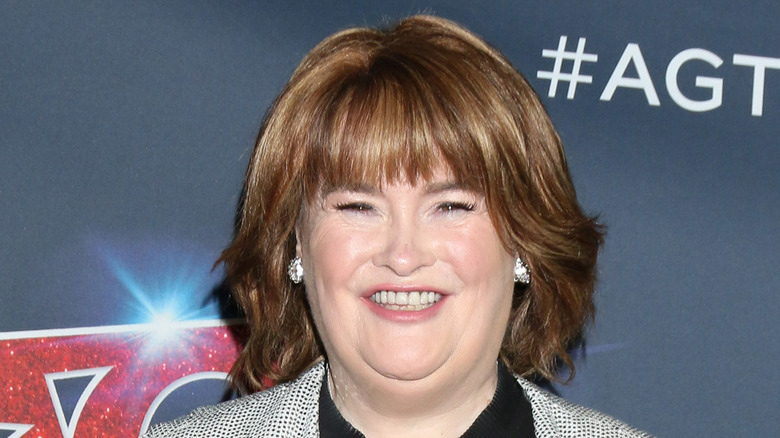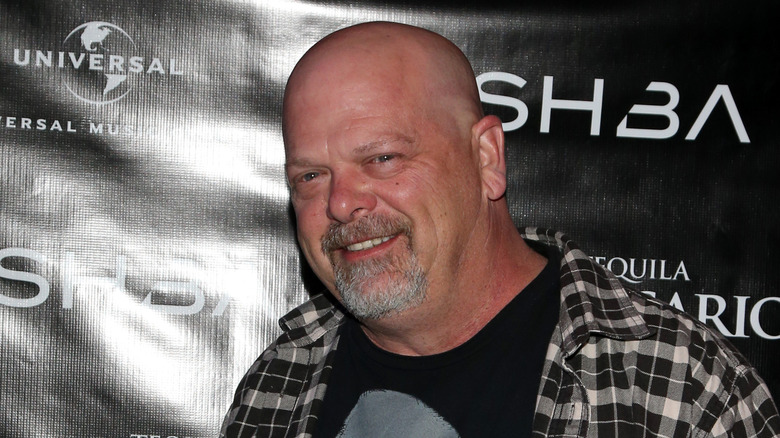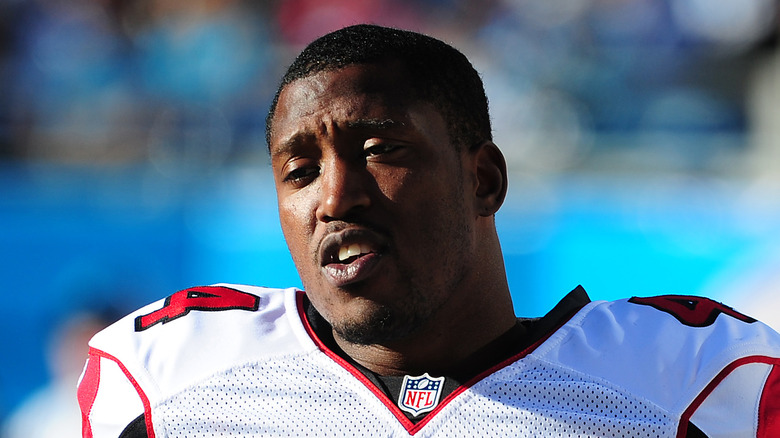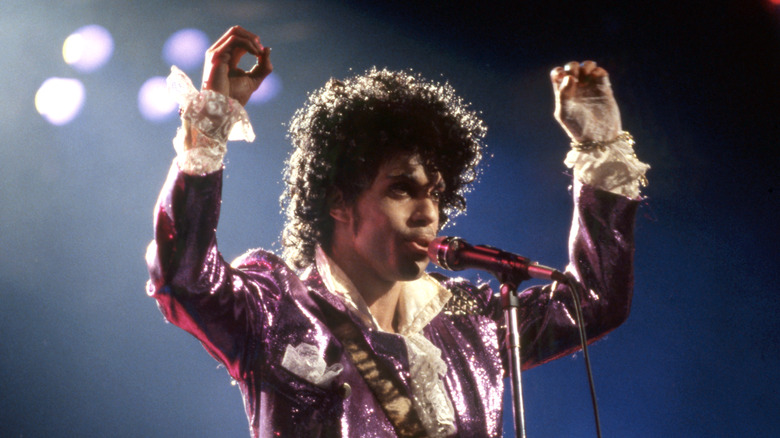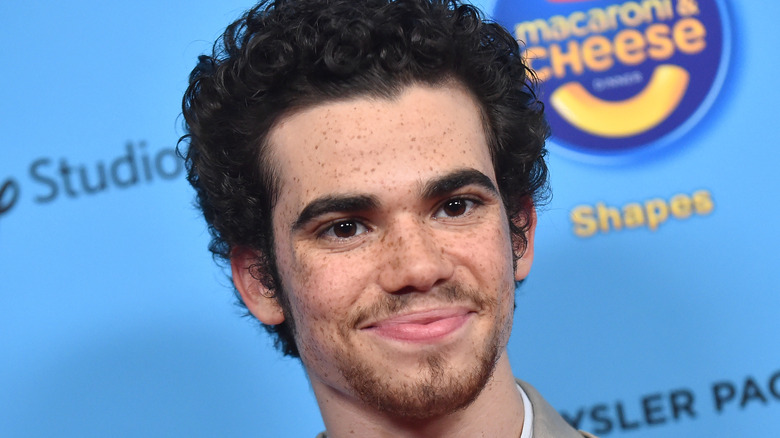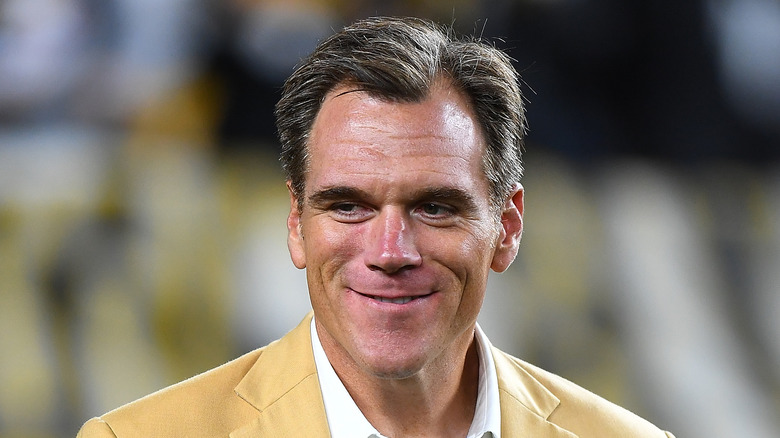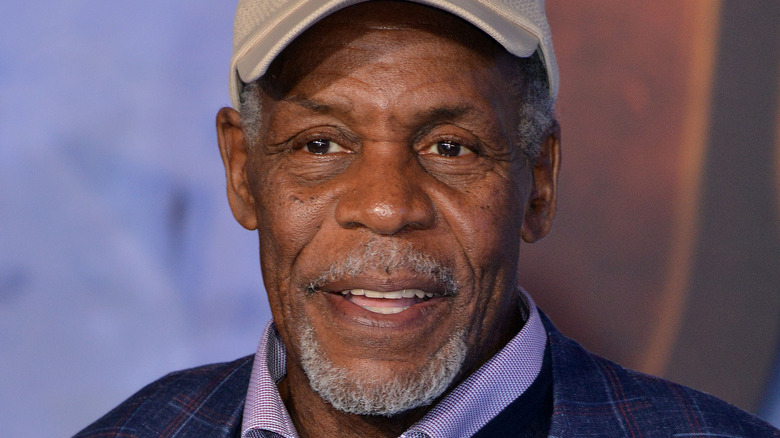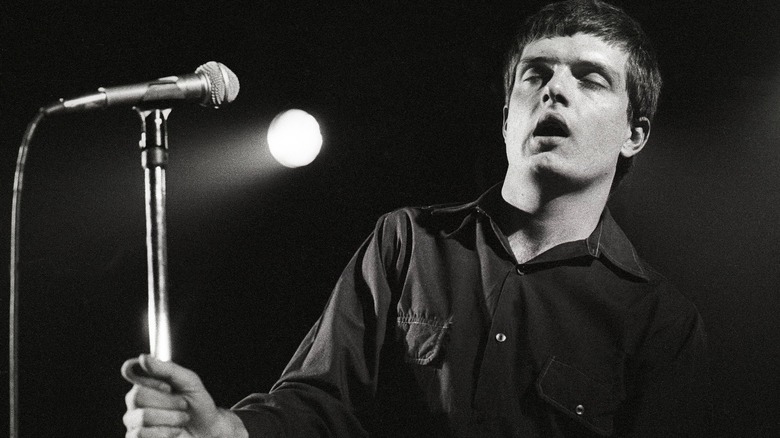Epilepsy Is More Common In Celebrities Than You Think
We like to think celebrities, despite their impressive net worth and exorbitantly fancy lifestyles, are just like us. Being an A-lister means life is a little sweeter, free from the mundane adult responsibilities that the rest of us must juggle. And yet, despite the perks of fame, celebs are humans too — just exceptionally dressed ones. Though they may seem high above the rest of us (especially in their sprawling Hollywood mansions), they still endure their own personal problems and health issues — except they do so in the public eye.
We may put them on a pedestal, but we forget that life's obstacles can knock them down a peg. Some of our favorite stars deal with chronic health issues, and we may not even know it. Epilepsy is prevalent in Hollywood, with many stars speaking out about their own struggles with the disorder. Defined by the World Health Organization as a "chronic noncommunicable disease of the brain," epilepsy typically involves recurring seizures. The condition isn't rare, with the Mayo Clinic estimating that about one in every 26 people will develop it in their lifetime.
Though there is no cure for epilepsy, much like the stars who overcame learning disabilities, many A-list sufferers have incredible careers while living with the condition. They have also shared their stories in an effort to shine a light on the disorder. Epilepsy is more common in celebrities than you think, and we're taking a look at all the stars with the disease.
Lil Wayne doesn't let epilepsy affect his career
Lil Wayne may be one of the music industry's most legendary rappers, but that doesn't mean he doesn't have health scares of his own. Many of his fans don't know that the "Annihilate" singer has battled epilepsy throughout his life, with it even sending him to the hospital at times. The Grammy winner told radio station Power 106 (via Rolling Stone) that he's gradually become accustomed to having seizures and that his team is used to dealing with his symptoms.
"I've had a bunch of seizures, y'all just never hear about them," Wayne said, adding that he once had back-to-back epileptic seizures that severely affected him. "Basically, I could've died, so that is why it was so serious. But the reason being for the seizures is just plain stress, no rest, overworking myself." The rapper has dealt with the disease since childhood but wasn't diagnosed until later in life. Though he's had an impressive career, Wayne has had to cancel shows and change flight routes to manage his seizures.
In 2016, TMZ reported that Wayne was treated aboard his private jet after having multiple seizures and losing consciousness. The plane was en route to Los Angeles when it was forced to make an emergency landing in Omaha after the rapper refused medical treatment. He was later transported to the hospital by ambulance and made a full recovery.
Neil Young attempted a now-banned treatment to ease his epilepsy
Neil Young is no doubt a music icon, with his style ranging from folk to country to rock and beyond. Despite his immense success, the "Harvest Moon" hit-maker has dealt with his own personal struggles behind the scenes. The Canadian guitarist opened up about his many health conditions, including epilepsy, in his memoir "Waging Heavy Peace," admitting he underwent a now-banished treatment to combat the disease.
"It has to do with having a radioactive dye injected into your nervous system — basically into your back, so it goes right into your nervous system," Young told NPR. The dye then makes its way up to the head, but "they usually get some bubbles of air and stuff in there too, so when those go through your brain, it's excruciating." The legendary singer-songwriter started having epileptic seizures in his early twenties, shortly after Young relocated to Los Angeles. Without proper treatment, Young's epilepsy affected his career and he often stopped in the middle of his sets due to his symptoms.
Young got candid about his condition in an interview with Rolling Stone, arguing, "Epilepsy is something nobody knows much about. It's just part of me." He added: "Sometimes something in my brain triggers it off. Sometimes when I get really high it's a very psychedelic experience to have a seizure. You slip into some other world. Your body's flapping around and you're biting your tongue and batting your head on the ground but your mind is off somewhere else."
Susan Boyle's epilepsy caused her to faint
Susan Boyle became an overnight sensation when she performed her rendition of "I Dreamed a Dream" on "Britain's Got Talent" back in 2009. Though she didn't take home the ultimate prize and instead came in second, the Scottish singer captivated the world with her vocal talents. Though her success speaks for itself, with over 25 million albums sold to date, Boyle's private life has been full of ups and downs.
In a 2011 interview with the Daily Mail, Boyle admitted she is one of the many celebrities living with epilepsy. "At school, I used to faint a lot. It's something I've never talked about. I had epilepsy. People in the public eye don't have things like that," Boyle shared. "All through my childhood they'd say epilepsy is to do with mental function. And now I realize it's not. I was up against all those barriers. It wasn't easy."
Boyle went on to break the barriers against her and continues to live the dream she once sang about. At the time of writing the "BGT" finalist still actively records music under Simon Cowell's label, Syco Entertainment.
Rick Harrison's epilepsy diagnosis led to his love of history
Fans may know Rick Harrison from the mega-hit History series "Pawn Stars," which features his business Gold & Silver Pawn front and center. While he's known for being a hustler and buying and selling unique artifacts, many viewers may not know that it was a personal disability that got Harrison into the pawning business in the first place. "Because of my seizures, I was forced to spend a lot of time in bed in my room away from the television when I was a kid ... The best way to entertain myself was to read, so I became very interested in history books," he told The Epilepsy Foundation, for whom the reality star is the national spokesperson.
His passion for history led Harrison to create his booming business, and a hit television show documenting it all soon followed. "For four years when I pitched the show, everyone told me people aren't going to watch a show about four fat guys in a pawn shop," he told WTOP. The "Pawn Stars" fan favorite has consistently given back to those struggling with epilepsy.
Even though his seizures stopped when he was a teenager, Harrison continues to bring awareness to the condition. "Having seizures as a kid was scary," he acknowledged to The Epilepsy Foundation in 2014. "I understand what it is like for people who still live with seizures every day. I am proud to work with the Epilepsy Foundation and help lead the National Walk for Epilepsy."
Jason Snelling was diagnosed with epilepsy as a teenager
Jason Snelling played his entire career as a successful running back for the Atlanta Falcons, but many may not know exactly what was going on off the field. Snelling was diagnosed with epilepsy when he was 15 after doctors couldn't figure out the reason for his seizures. "One time, I remember being in New York City with my family during the summer and crossing the street," Snelling told The New York Times. "And we're crossing the street and I just blanked out as I was walking. Right there, in the middle of where traffic would be, I blanked out. After a couple seconds, I came back, but it was scary. Cars were honking their horn and everything."
Snelling manages his condition with medication and a healthy lifestyle. Though he lived much stricter than many of his teammates, Snelling's focus on his health allowed him to play professional football for seven seasons before retiring in 2014. With his NFL career behind him, Snelling has continued to give back to his community and help spread awareness by teaming up with The Epilepsy Foundation.
He's participated in national walks for the organization and also visited children in hospitals that share his condition. "Epilepsy is something I have, but it doesn't hold me back," he told The New York Times. "I want to show people, kids in particular, what I can do. Maybe someday, some kid will be in the N.F.L. because I showed him he can have epilepsy and still chase his dreams."
Prince compensated for his epilepsy by becoming a performer
Prince is one of the biggest icons in music history, no question. His eclectic combination of R&B, funk, pop, soul, and so much more led him to have an outstanding career before the prolific musician tragically died of a fentanyl overdose in 2016. The Hall of Fame member and multi-Grammy-winning artist's accolades speak for themselves, and his songs still make millions want to get up and dance years after his death. But many fans may not know that part of Prince's over-the-top personality and boundary-pushing performances originated out of a desire to compensate for a perceived disability.
"I've never spoken about this before but I was born epileptic," the singer confirmed on PBS's "Tavis Smiley" show (via People). "I used to have seizures when I was young. My mother and father didn't know what to do or how to handle it but they did the best they could with what little they had." Prince's struggles with epilepsy meant his early years weren't always the easiest. The "Purple Rain" hit-maker explained how a desire to overcome the bullying made him the singer that fans all over the world remember him as today.
"Early in my career I tried to compensate by being as flashy as I could and as noisy as I could," he shared. Prince also admitted that a spiritual intervention helped him overcome his symptoms. He remembered telling his mom: "'Mom, I'm not going to be sick anymore,' and she said 'Why?' and I said 'Because an angel told me so.' Now, I don't remember saying it, that's just what she told me."
Cameron Boyce died suddenly from an epileptic seizure
Many people with epilepsy are familiar with SUDEP, or "Sudden Unexpected Death in Epilepsy." SUDEP.org defines it as "when a person with epilepsy dies suddenly and prematurely and no reason for death is found." Often, it can occur while individuals are sleeping, and research is still being done to figure out the exact cause, though suffocation and heart problems are linked to the condition.
Disney star Cameron Boyce had his own struggles with epilepsy for years before he tragically died from SUDEP in 2019. Boyce's parents noted that his death was completely unexpected as the former child star had suffered just five seizures in his life due to his epilepsy, his first occurring when he was just 16 years old. "He always had them in his sleep and the worst thing that would happen was he would bite his tongue and he would wake up with a headache," Victor Boyce informed Today.
Their family enjoyed dinner with Cameron the night before they got the unexpected call from their son's roommate about his passing. "I still didn't believe it. There was no way this was true. It was just a nightmare," he said. Since his death, the "Jessie" star's parents have started The Cameron Boyce Foundation, which aims to raise awareness of epilepsy and fund research in the hopes of one day finding a cure.
Alan Faneca didn't let epilepsy stop him from winning the Super Bowl
Alan Faneca's incredible football career has made him a memorable former player, leading to his induction into the Pro Football Hall of Fame in 2021. His incredible stats and his Super Bowl XL win are impressive, even more so given Faneca is one of many former athletes to battle epilepsy. The former Pittsburgh Steelers player shared his story of coping with the disease with Epsy Health, asserting that he had chronic seizures growing up that led to his diagnosis. Faneca eventually got on medication which he credits with allowing him to have an NFL career.
"I am very fortunate and live seizure-free — but I'm conscious of never missing a dose, if I miss two medications then I definitely would be on the borderline of having a seizure straight away," he noted. Faneca found out about his diagnosis when he was just a teenager, and he was understandably fearful about losing his ability to play football.
Due to his strict regimen of taking his required dosage, Faneca went on to achieve his dreams while also helping others with the disorder. He shared, "Now I'm a father, my daughter Annabelle has a rare type of epilepsy called Sturge-Weber syndrome – with my own experience I had the knowledge to help her, she's had it since she's 1 – now she's a teenager and it's hard to give her the space!"
Danny Glover recognized when he was about to have an epileptic seizure
Beloved actor Danny Glover is known for his iconic role as Detective Murtaugh in the "Lethal Weapon" franchise, alongside many other roles across TV and film. While Glover has graced our screens for decades, fans may not know that the actor battled epilepsy in his early years. Glover appeared on "Sharing Miracles" (via the Epilepsy Foundation) and confirmed that he first started having seizures when he was 15 years old.
"Eventually, I could recognize it happening. Then I could say, wherever I was, 'Something is happening to me. Please grab me. Please hold me. I'm about to have a seizure,'" he wrote in a blog post, per BlackDoctor. The actor recalled symptoms of a seizure coming on when he was performing at a local theater and thankfully Glover was able to talk himself out of having an epileptic episode.
He recalled reassuring himself "I will not have this seizure, I will not have this seizure" until his symptoms gradually began to diminish. The celebrated star went on to become a Hollywood legend, making a name for himself with notable roles in films like "The Color Purple" and "Dreamgirls." His adolescent years behind him, Glover has proudly not experienced a seizure since he was 35.
Ian Curtis died shortly after his epilepsy diagnosis
Ian Curtis was one of many celebrities who quietly battled epilepsy behind the scenes. Curtis was the lead vocalist of the English post-punk band Joy Division, which was originally formed in 1976. The band went on to become one of Manchester's most legendary acts, releasing two albums and five singles while at the peak of their career, the most iconic of which was undoubtedly "Love Will Tear Us Apart."
Unfortunately, Joy Division came to an untimely end when Curtis died by suicide in 1980. The artist had been diagnosed with epilepsy just two years prior, which began a turbulent period until his death. Curtis had significant bouts of depression throughout his life alongside severe mood swings and bad reactions to the medication he took for his condition.
While at the height of his career, the former Joy Division singer was experiencing his lowest lows. Curtis's epileptic seizures left him unable to even hold his young child. The surviving members of Joy Division eventually became the rock band New Order. The group continues to regularly release music and play live.
If you or someone you know is struggling or in crisis, help is available. Call or text 988 or chat 988lifeline.org.

